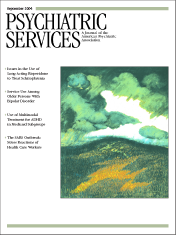Depression in Later Life: A Multidisciplinary Psychiatric Approach
Finding a text to share on the subject of late-life depression may not ordinarily seem like cause for celebration, but, in fact, this new addition is worthy of such excitement. The recent arrival is the 23rd volume of the impressive Medical Psychiatry Series, written and edited by leaders in the field of geriatric depression. This latest volume brings together a broad range of authors writing in their respective areas of interest and specialty. The editors have assembled this thorough text for clinicians from every discipline to use in the recognition and appropriate management of depression among older adults.
Depression in Later Life: A Multidisciplinary Psychiatric Approach opens with an engaging account of the epidemiologic challenges in defining and measuring depression in later life, complicated by comorbid illness, psychosocial losses, environmental influence, and cultural bias. Here the reader is introduced to themes running throughout the text outlining the tragedy of underrecognized and undertreated depression in our aging population. Successive chapters describe the complexity of diagnosing depression and nonmajor depressive syndromes among older adults. There is growing evidence that depressive syndromes in late life are distinct from those found among younger adults. Clear descriptions of emerging concepts such as subthreshold major depression, subsyndromal depression, and minor depressive disorder help the reader to unravel the limitations of our current nosology and fill in the mosaic of depressive syndromes that are especially relevant to older adults.
Among my favorite chapters was the one titled "Bereavement and Depression in Late Life," in which the authors thoughtfully examine the entwined nature of these distinct phenomena. Even seasoned clinicians will profit from reading this eloquent analysis of grief and depression. Likewise, there is a very useful chapter on caregiver depression that includes detailed case studies and provides ample resources for caregivers and providers alike. This book provides geriatric clinicians with information on the enormous burden—with physical, financial, and emotional consequences—placed on those providing care for the elderly.
The complex relationship between depression and medical illness is appropriately addressed in a review of specific disease entities that uses a conceptual framework to describe the interaction of physiological, psychological, and psychosocial factors. This review is followed by a succinct chapter on a topic of great research interest in the field of geriatric psychiatry—vascular depression. Magnetic resonance imaging studies and clinical and neuropsychological correlates of this relatively newly described entity complete the section.
The clinical applicability of this text is contained in the second section titled "Therapeutic Interventions and Outcomes." These chapters provide specific details on the optimal and appropriate management of depression with the use of evidence-based pharmacotherapy, electroconvulsive therapy, and psychotherapy with older adults. This latter chapter uses reconstructed exchanges between the patient and the therapist to more clearly demonstrate differences in theoretical models as adapted for the geriatric population.
While some clinicians may choose to use this volume as a reference guide when confronted with specific challenges, others will want to read it from start to finish. It is an informative, thought-provoking, and highly relevant assessment of an important subspecialty within psychiatry that will appeal to clinicians and students from all disciplines. Geriatric educators should consider Depression in Later Life as recommended reading for all multidisciplinary trainees specializing in the care of older adults.
Dr. Pinals is assistant director of geriatric psychiatry and director of the geriatric psychiatry fellowship program at Cambridge Health Alliance in Cambridge, Massachusetts.



